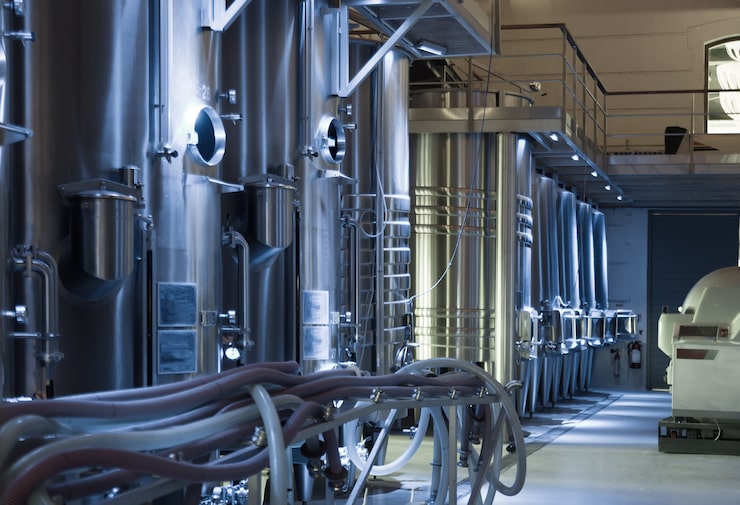When it comes to large-scale infrastructure, heavy machinery, manufacturing, chemical processing, or energy generation, one component plays a vital but often overlooked role: industrial pipes. The question "What are the different types of industrial pipes" is fundamental to engineers, procurement managers, contractors, and anyone involved in industrial projects. The right type of piping can mean the difference between a system that operates efficiently and one that suffers from downtime, leaks, or catastrophic failure.
Industrial pipes are specially designed to transport fluids, gases, steam, or solids under extreme temperatures, pressures, or corrosive conditions. Choosing the appropriate pipe type depends on several factors, including the medium being transported, environmental conditions, pressure ratings, and compliance with regulatory standards.

To address this question comprehensively, we will explore the major types of industrial pipes, their properties, typical applications, and advantages. Understanding these categories will help decision-makers optimize safety, performance, and long-term cost-efficiency in any industrial system.
1. Carbon Steel Pipes
Carbon steel pipes are among the most widely used pipes in industrial settings. They are made from a mixture of iron and carbon and are known for their high tensile strength and ability to withstand high pressures and temperatures.
These pipes are commonly used in oil and gas industries, power generation, refineries, and chemical plants. Their durability makes them suitable for transporting steam, water, oil, and even toxic gases. Depending on the carbon content and heat treatment, carbon steel pipes are available in seamless or welded forms, each offering unique performance characteristics.
However, carbon steel can be susceptible to corrosion if not protected by coatings, linings, or cathodic protection systems. Still, its affordability and strength make it a go-to material for many industrial applications.
2. Stainless Steel Pipes
Stainless steel pipes are favored in environments where corrosion resistance is critical. These pipes are made from a steel alloy that includes chromium, which provides exceptional resistance to rust and chemical attack. There are multiple grades of stainless steel, each suited to specific industrial needs.
Industries such as food processing, pharmaceuticals, petrochemicals, and marine applications often rely on stainless steel piping due to its hygienic properties, resistance to extreme temperatures, and smooth internal surface that minimizes friction and scaling.
Stainless steel pipes may be more expensive than carbon steel alternatives, but they offer a longer lifespan and reduced maintenance, especially in corrosive or sanitary environments.
3. Alloy Steel Pipes
Alloy steel pipes are made by adding elements like chromium, molybdenum, nickel, and vanadium to carbon steel to improve mechanical properties such as strength, toughness, and wear resistance. These pipes are designed for high-temperature and high-pressure applications, making them ideal for power plants, boiler systems, and high-stress environments.
Alloy steel piping is essential when standard carbon or stainless steel cannot meet the requirements for performance or durability. These pipes are available in various grades, each tailored for specific applications where mechanical performance is a top priority.
4. Ductile Iron Pipes
Ductile iron pipes are a robust option for water and sewage systems. These pipes are known for their flexibility and strength compared to traditional cast iron. They are commonly used in municipal water distribution networks, industrial water transport, and wastewater management systems.
One of the key advantages of ductile iron is its ability to withstand external loads without cracking. The internal cement mortar lining protects against corrosion, making it suitable for transporting potable water. Although relatively heavy, ductile iron pipes are favored in buried applications where long service life and mechanical strength are required.
5. PVC and CPVC Pipes
Polyvinyl chloride (PVC) and chlorinated polyvinyl chloride (CPVC) pipes are widely used in low-pressure industrial systems, especially where corrosion or chemical resistance is important. PVC is suitable for cold water, drainage, and ventilation systems, while CPVC can handle higher temperatures, making it usable for hot water and industrial liquid handling.
These plastic pipes are lightweight, easy to install, and resistant to chemical attack. They are especially common in chemical processing plants, laboratories, and water treatment facilities. However, they are not ideal for high-pressure or high-temperature applications.
6. HDPE Pipes
High-density polyethylene (HDPE) pipes are increasingly used in industrial and municipal applications due to their flexibility, chemical resistance, and durability. HDPE pipes are typically used for water supply, gas distribution, slurry transport, and chemical processing.
What makes HDPE particularly attractive is its resistance to corrosion, impact, and ultraviolet light. These pipes are often joined using heat fusion, creating a leak-free, monolithic system. HDPE is especially useful in trenchless applications such as directional drilling or pipe bursting, making it a top choice for modern infrastructure projects.
7. Concrete Pipes
Concrete pipes, including reinforced concrete pipes (RCP), are extensively used in stormwater drainage, sewer systems, and culverts. These pipes offer unmatched strength and durability, with the ability to handle high external loads and large diameters.
Concrete is not suitable for all types of industrial fluids, especially those that are corrosive, but in non-reactive systems involving water or storm runoff, it delivers long service life with minimal maintenance. Concrete pipes are also fire-resistant and perform well under static loading conditions.
8. Glass-lined Pipes
Glass-lined steel pipes are used in industries that handle highly corrosive materials, such as acids or alkalis. These pipes have a steel exterior for strength and an internal glass lining that resists chemical attack.
This type of piping is prevalent in the pharmaceutical and specialty chemical industries where purity, cleanliness, and chemical compatibility are essential. Although fragile under mechanical stress and expensive, they provide excellent corrosion resistance for niche applications.
9. Copper Pipes
Copper pipes are more common in residential and commercial buildings but also see use in some industrial HVAC systems, compressed air systems, and fire sprinkler networks. They are naturally resistant to corrosion, easy to install, and have good thermal conductivity.
However, copper is relatively expensive and not suitable for transporting certain industrial chemicals. Its use is generally limited to systems that benefit from its antimicrobial properties or thermal efficiency.
10. Galvanized Steel Pipes
Galvanized pipes are coated with a layer of zinc to prevent corrosion. While once common, they are now used more selectively in industrial applications due to corrosion issues over time, especially with certain fluids.
They are sometimes found in older installations or low-demand systems, but for most industrial use cases, more modern materials have taken their place due to better longevity and performance.
Conclusion
Answering the question “What are the different types of industrial pipes” involves more than just listing materials. Each pipe type plays a unique role in the industrial ecosystem, and selecting the right one depends on factors such as fluid type, temperature, pressure, chemical exposure, installation environment, and budget.
For high-pressure steam and gas systems, carbon or alloy steel pipes offer unmatched performance. In environments requiring corrosion resistance, stainless steel, HDPE, or CPVC may be the optimal choice. For water and sewage systems, ductile iron and concrete remain industry standards. For highly specialized environments, glass-lined or copper pipes might be required.
The selection process should always be guided by application-specific requirements, industry regulations, and expert consultation. Making the right choice in industrial piping enhances safety, reliability, efficiency, and ultimately contributes to the long-term success of any project.



